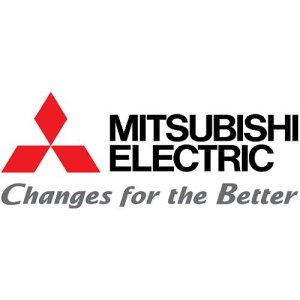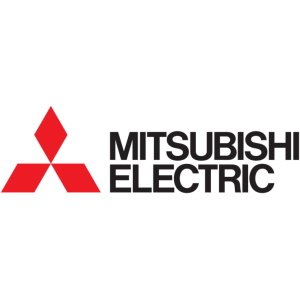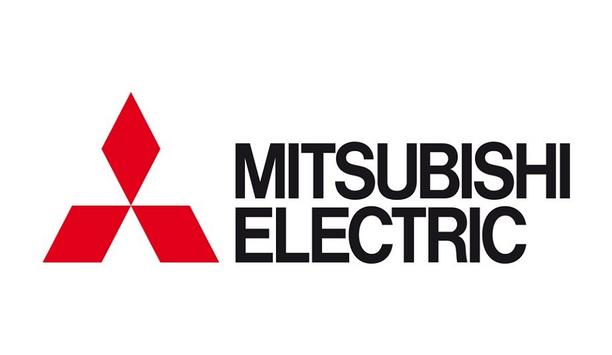Mitsubishi Electric Corporation - Experts & Thought Leaders
Latest Mitsubishi Electric Corporation news & announcements
Mitsubishi Electric has welcomed the Government’s release of another £940 million for Phase 4 of the Public Sector Decarbonization Fund to help Local Authorities remove gas heating from their buildings. As the UK’s largest heat pump manufacturer, Mitsubishi Electric is now calling on the Government to look at similar initiatives to help reduce carbon in the private sector. Heat pumps and low-carbon heating Since 2020, the Public Sector Decarbonization Fund has made over £3.6 billion available to help decarbonize schools, libraries, town halls, and other public buildings, and this has led to many examples of gas heating being replaced with low-carbon renewable heating and hot water systems. While a lot of media focus has rightly been on converting the 1.6 million residential gas boilers sold each year to heat pumps and low-carbon heating, the Public Sector Decarbonization Fund highlights the significant opportunity that commercial buildings can deliver. Modern heat pump technology “There are over 2 million ‘non-domestic’ buildings in the UK and they are responsible for around 18% of the UK’s carbon emissions, so we are calling on the Government to look at how they can support commercial businesses in moving away from gas,” comments Chris Newman, Zero Carbon Design Manager for Mitsubishi Electric. Modern heat pump technology offers high water flow temperatures and equipment efficiencies, which means that more and more buildings are finding it easier to make the switch to low-carbon renewable heating and hot water systems. Net-zero targets “We know that the Government is already looking at trying to balance the price difference between electricity and gas,” said Chris Newman, adding “It may be time to also look at other incentives to help businesses decarbonize their buildings which will help the UK drive towards our legally binding net zero targets.”
Mitsubishi Electric has launched a new user-friendly, touchscreen controller to offer full remote controllability, monitoring and reporting for up to 400 air conditioning units. The AE-C400E centralized controller is IoT-ready and comes with a high-precision, durable 12.1" glass capacitive touchscreen with quick-response multi-touch capabilities, to offer effortless control with a visually enhanced, easy-to-read display. Mitsubishi Electric’s MELCloud platform The built-in IoT gateway allows access to Mitsubishi Electric’s powerful MELCloud Commercial platform “Our customers have been telling us that they need an internet-ready, flexible and expandable control system for their HVAC, which is intuitive to operate, and delivers automated reporting and monitoring,” explains Manohar Lal, Product Manager for Control Systems for Mitsubishi Electric. The built-in IoT gateway allows access to Mitsubishi Electric’s powerful MELCloud Commercial platform, which can then allow facilities managers to remotely access their entire estate’s HVAC. New features and functions By using the webpage function, they will be able to see up to 2,000 indoor units anywhere, to deliver full control along with detailed monitoring and reporting to help improve on-site maintenance. “Building operators need a system that can optimize comfort and efficiency effortlessly, so we’ve responded to that with this new full color touchscreen system which offers user-friendly control across a building or an entire estate,” adds Manohar. “We have also designed this first iteration to become an increasingly powerful controller and will add new features and functions via future updates.” Building's air conditioning and ventilation AE-C400E unit helps to simplify day-to-day system management and includes an accessible USB-C port The people in control of a building's air conditioning and ventilation will be able to make informed decisions about air quality and comfort settings in individual spaces or across a floor or building, to full system operation and performance. The AE-C400E unit helps to simplify day-to-day system management and includes an easily accessible USB-C port, allowing system data to be downloaded. How the system is performing in comparison The full-colour screen displays the outside ambient temperatures to show how the system is performing in comparison. The controller also displays CO2 sensor readings in both numerical and graphical formats for real-time insights into air quality, helping to maintain a healthier indoor environment. The AE-C400E offers the ability to manage up to 50 indoor units, straight out of the box, with additional blocks of 50 units added through the EW-C50 expansion module. This enables the system to be scaled up to 400 units, across an entire network. Performance analysis of commercial HVAC Pre-installed software and PIN codes are designed to help installers with the initial setup Pre-installed software and PIN codes are designed to help installers with the initial setup. The controller’s built-in interlock function also enables the device to interface with lighting systems and key card entry systems, making it ideal for applications such as hotels and accommodation blocks. Facilities teams or service and maintenance providers can access systems either onsite or remotely, to deliver monitoring and performance analysis of commercial HVAC, including the ongoing energy performance. There is also the option to add on energy apportioning and BACnet functionality, without the need for a backup controller. Energy consumption “This increases the cost effectiveness and ease with which people can monitor and optimize multiple sites from an energy consumption point of view,” adds Manohar. “It also gives service engineers the ability to monitor the health of equipment and enables them to proactively approach their customers before any minor equipment issues can become a major problem”. Mitsubishi Electric’s M Series air conditioning units Mitsubishi Electric chillers under the Climaveneta and RC Group brands are compatible The system is fully compatible with Mitsubishi Electric’s M Series, Mr Slim and City Multi air conditioning units along with Lossnay MVHR ventilation units and the e-Series chillers. Mitsubishi Electric chillers under the Climaveneta and RC Group brands are compatible through a dedicated adaptor, and commercial heat pumps, including the Ecodan CAHV, QAHV, and CRHV, will be added to the portfolio later this year. Importance of HVAC control systems “We know the increasing importance that HVAC control systems will play in ensuring buildings are sustainable and comply with increasingly tough energy legislation, which is why we have developed this new controller to offer flexibility for a huge range of building sizes,” explains Manohar Lal. “We want to help our customers find a cost-effective, energy-efficient solution as this will be crucial to managing, monitoring, and reporting on the performance of their buildings or estates”.
Grace Homes, the luxury property development company building homes in Northamptonshire and Leicestershire, is setting a high benchmark for sustainable living. The company has integrated air source heat pumps from Mitsubishi Electric at its Sysonby Lodge development in Melton Mowbray. Sysonby Lodge includes a courtyard of mews-style properties, detached and semi-detached homes and ten luxury residences in a renovated Grade II-listed lodge. Future Homes Standards Each property has been equipped with Mitsubishi Electric Ecodan heat pump, alongside other sustainable technologies, including photovoltaic (PV) solar panels and battery storage solutions. This approach has allowed Grace Homes to achieve the highest Energy Performance Certificate (EPC) A ratings, which align with the UK government’s Future Homes Standards. Ecodan heat pump installations Mitsubishi Electric has had a longstanding relationship with Grace Homes’ over 15 years Mitsubishi Electric has had a longstanding relationship with Grace Homes’ over 15 years and has played a key role in the sustainability journey. Peter Hutorka, Construction Director at Grace Homes, said, “We spent a lot of time researching the best sort of hardware that would work for us, and we felt that the Mitsubishi Electric’s product, being a market pioneer, was really the way to go.” As part of this collaboration, Mitsubishi Electric provided design support with detailed heating and hot water system drawings for each property, ensuring seamless Ecodan heat pump installations. The technical support team offered ongoing assistance, including troubleshooting and video consultations, to ensure smooth project execution. Long-term partnership with Mitsubishi The heat pumps were installed by Nigel Smith Plumbing & Mechanical Services Ltd, an accredited installer that had completed approved Mitsubishi Electric training. Matt Smith, Project Heating Director at Nigel Smith Plumbing & Mechanical Services Ltd, said of the long-term partnership with Mitsubishi, “It’s brilliant. They’re always at the end of the phone, and if you need to call them and have a video call with them, that’s always there as an option.” energy efficiency of the Ecodan heat pump Ecodan heat pumps were installed in both new-build homes and a Grade II-listed lodge During this project, Ecodan heat pumps were installed in both new-build homes and a Grade II-listed lodge. While installations in new builds were straightforward, the renovation required innovative solutions, including a banked system with five units serving the apartments remotely, which the heat pumps were able to adapt to. The integration of sustainable technologies, particularly Ecodan heat pumps, has become a key selling point for Grace Homes. Emily Smith, Sales and Marketing Manager at Grace Homes, noted that homeowners appreciate the energy efficiency of the Ecodan heat pump, especially the ability to use the MELCloud app for remote heating control. Future of sustainable housing development The homes' EPC A rating and focus on sustainability also appeal to buyers, with many prioritizing energy efficiency in their decisions. Emily explains that: “Homeowners love the idea of sustainability being built into their homes, and the EPC A rating has been a key factor in their decision to buy from us.” The collaboration between Grace Homes and Mitsubishi Electric exemplifies the future of sustainable housing development.
Insights & Opinions from thought leaders at Mitsubishi Electric Corporation
Although energy efficiency continues to be a focus of home renovation, HVAC professionals are sometimes hesitant to work on older homes. The potential costs and complexities of replacing outdated HVAC systems or installing a solution where one doesn’t exist can make them nervous. However, installing all-electric, all-climate heat pumps in homes built decades ago, even a century ago, is an everyday occurrence in the northeastern U.S. Heating and cooling systems A sizable portion of Jay Moody Heating & Air Conditioning consists of installing and servicing energy-efficient heating and cooling systems, especially heat pumps, in older homes in central Massachusetts. Updating older homes with heat pump solutions is more feasible than many think — it’s a matter of overcoming common barriers and being the right, experienced HVAC professional for the job. Common barriers when heating and cooling an older home In Massachusetts, it’s common to have one or more 275-gallon tanks of oil in the basement to heat homes Barriers to renovating older homes are surmountable. Commonly, older homes lack adequate filtration and insulation and are equipped with older electrical panels that might need upgrading or replacing. In Massachusetts, it’s common to have one or more 275-gallon tanks of oil in the basement to heat homes. However, whether an older home is heated with oil or gas, outside air infiltration occurs because these structures generally lack a tight building envelope. More recently built homes have these systems to prevent outside air and water from penetrating the structure. Similarly, many older homes are insufficiently insulated. Size of the structure and other electrical loads As a first step, owners of older homes should get an energy audit and find out what can be done to eliminate infiltration, such as having air sealing performed and having more insulation blown into their houses. Once weatherization is complete, installing an all-electric heat pump system becomes more feasible. Another important requirement would be an appropriately sized electrical panel. Older homes might have 100 amps of service, for example, when it will need 200 amps for the new heat pump, depending on the size of the structure and other electrical loads such as electric stoves/ovens, water heaters, and electric vehicles. In some cases, an electrical panel upgrade may be required. Attributes homeowners look for in an HVAC company HVAC companies that specialize in heat pumps should ensure their HVAC technicians are shared and ongoing training When upgrading an older home with a heat pump system, it’s a best practice for homeowners to get multiple quotes from experienced contractors in their service area. To stand out and offer more value during this process, my business conducts monthly heat pump workshops that help educate customers. Additionally, I recommend that any experienced, reputable HVAC company should post online reviews, have a professional website and online presence, and show relevant work examples to help familiarize homeowners with their work. HVAC companies that specialize in heat pumps should ensure their HVAC technicians are experienced and undergo ongoing training. In fact, the Jay Moody team is part of the Mitsubishi Electric Diamond Contractor® program, which provides in-depth training on heat pump solutions. Homeowner’s comfort preferences During the in-home consultation, the salesperson should discuss the homeowner’s comfort preferences, HVAC concerns, and short- and long-term plans for the home and its HVAC system. The contractor should conduct an in-house Manual J to calculate the heating and cooling loads of the home, ensuring proper HVAC equipment sizing for efficient and comfortable performance. Lastly, the HVAC salesperson should make suggestions for keeping the aesthetics of an older home intact. For instance, my team would not use mini-splits in certain rooms in a Victorian home because they might detract from the style. Instead, they would likely suggest a ducted heat pump system with air handlers and stylish vents. HVAC salesperson should make suggestions for keeping the aesthetics of an older home intact. Heat pumps offer the right fit for homes of all ages In the Northeast, many of the homes are older – whether that means built in the 1960s, the 1860s, or the 1760s. There’s little reason that any HVAC contractor should shy away from installing heat pump systems in older homes. Further, contractors can learn how to teach homeowners about heat pumps, train their teams, and recommend the right system for the character of the house. Refurbishing these beautiful houses is a challenge well worth tackling to create homes as energy-efficient and comfortable as they are charming.
“Decarbonising home heating represents one of the biggest challenges to the government achieving net zero,” was a conclusion of the recent National Audit Office report ‘Decarbonising home heating’. The facts, the report states clearly in the opening are: 18% of the UK’s greenhouse gas emissions in 2021 were from home heating and 55,000 heat pumps were sold in the UK in 2022. decarbonizing home heating Crucial to decarbonizing home heating is the government’s ambitious goal to install 600,000 heat pumps annually by 2028 – just four years away. To achieve this, installations need to increase 11-fold on current levels. To foster the uptake of heat pumps several actions can be taken including rebalancing the cost of electricity and gas, training more installers to meet demand, and generating more awareness of heat pumps by consumers. Rebalance the cost of electricity and gas In fact, from April 2024, gas prices were capped at 6p/kWh while electricity prices were capped at 24p/kWh In the UK, the wholesale price of electricity is pegged to an expensive source of energy - gas. This means electricity prices are artificially inflated by the price of gas despite more and more of the country’s electricity being generated from renewables. In fact, from April 2024, gas prices were capped at 6p/kWh while electricity prices were capped at 24p/kWh. Decoupling the price of electricity There is an imbalance of social and environmental levies which are loaded onto electricity bills. These add an average of £131 to a customer’s annual electricity bill, compared to just £34 for the average annual gas bill, meaning that the cost of running a heat pump is artificially high compared to a gas boiler. This can be addressed by rebalancing the cost of electricity with a more progressive and environmentally conscious distribution of levies and by de-coupling the price of electricity from the price of gas. This would make electricity more affordable, which is particularly relevant at a time when the cost of living is causing huge strain across the UK. Growing the green economy It would also move household energy requirements away from fossil fuels and volatile oil and gas prices, back UK energy security as the nation moves to renewable energy sources, and help to grow the green economy and employment in the UK. In the long term, the removal of levies on electricity bills would help to balance these costs. In the short term, the Heat Pump Associations’ call for a Domestic Heat Pump Tariff Discount would reduce the price of electricity used for hot water and heating produced by a domestic heat pump. Train heating engineers We need 33,700 full-time heat pump installers in the UK to support the government’s ambitions Improving upskilling, capacity building, and infrastructure investment is also required to provide the number of heat pump installers needed to meet the government’s annual target. Significant progress has already been made in training heat pump installers. In 2023, close to 8,000 individuals became qualified heat pump installers – compared to just under 3,000 in 2022. The Heat Pump Association estimates that we need 33,700 full-time heat pump installers in the UK to support the government’s ambitions for heat pump uptake. Heat Pump Training Grant We are currently at around 11,000 so we must continue the upward trajectory of the last few years to meet this goal. The government’s Heat Pump Training Grant is supporting this effort by offering £500 towards the cost of training to become a heat pump installer. Beyond this, support for building the UK’s capacity and capability to manufacture heat pumps and their components is vital to be able to meet demand as it increases in the future. Building skills as heat pump engineers Our heat pump manufacturing facility in Livingston, Scotland, already employs some 1,800 people in green jobs and supplies heat pumps for installation across Britain and export to the rest of Europe. As of this year, in addition to our training facility in Hatfield for installers to build their skills as heat pump engineers, we have added new centers in Livingston and Manchester, and are planning for more. We are also proudly working with colleges, supporting them as they take on young people to learn skills in renewable energy. Increase consumer awareness Ipsos revealed that over 70% of consumers still know little to nothing about how heat pump technology works To increase the uptake of heat pumps, consumer awareness needs to be raised. Research commissioned by Ipsos revealed that over 70% of consumers still know little to nothing about how heat pump technology works. This means that educating consumers on the importance of heat pump technology will also be crucial to encouraging wider uptake. Greater awareness of the benefits of heat pumps, driven by the government, media, and organizations within the heat pump industry, will ultimately accelerate adoption, help decarbonize home heating, and help us hit the all-important net zero goal. Getting to net zero calls for a heat pump boost It is well documented that heat pump uptake needs to grow, or we risk missing our climate goals. The technology to help us achieve this already exists in the form of heat pumps. However, steps must be taken to raise awareness about their potential and benefits, reduce their running cost by rebalancing electricity and gas prices, and ensure there are enough trained heat pump installers to meet demand as it increases.
In 2019, the UK became the first major economy in the world to pass laws to end its contribution to global warming by 2050 - a landmark moment on the road to net zero. To meet that target, owners and managers of commercial buildings are increasingly facing more standards, regulations, and legislation to promote carbon reduction. This may pose challenges when it comes to investing in building service technologies, but the net-zero goal also provides an opportunity to embrace new approaches to the design and operation of commercial buildings. Heat commercial buildings When we look at reducing the carbon impact of a building, heating is an important factor to consider. Heating and hot water are significant contributors to a building’s carbon emissions. In fact, they create nearly a third (32%) of the total carbon emissions in the UK. Luckily, the technology to heat commercial buildings in a more energy-efficient, renewable way is already out there - in the form of heat pumps. There is legislation focused on the provision of heat to commercial buildings that need to be considered So, what benefits can heat pumps offer, and how can building managers be sure that they are the right solution for a commercial space? There are already regulations in place to help reach net-zero – from the Climate Change Act in 2008 to the Green Growth Strategy in 2017. More specifically, there is legislation focused on the provision of heat to commercial buildings that need to be considered. Energy efficiency standards Part L of the Building Regulations states that non-domestic buildings should be moving to low-carbon heat sources, the minimum energy efficiency standards means it’s illegal to let any property with an EPC rating of less than band ‘E’, and the Non-Domestic RHI has been extended until 2022, in order to help overcome barriers to investing in renewable heating. There is also growing interest in embodied carbon in commercial buildings, and considering the amount of carbon produced by a building across its whole lifecycle, it’s important to understand the full environmental cost of the extraction, processing, manufacture, delivery, and assembly of every single product or material used. Conventional electric heating The government has already set a target of 600,000 heat pump installations per year by 2030 Needing to consider all of these factors may seem like a lot, but it serves to show that focusing on renewable heating now is the best way to future-proof commercial buildings for years to come. Heat pumps are central to reaching this decarbonized future, with the Carbon Trust finding that heat pumps have the potential to deliver CO2 savings of up to 70% compared to conventional electric heating, and up to 65% compared to an A-rated gas boiler. The government has already set a target of 600,000 heat pump installations per year by 2030, and the Committee on Climate Change estimates that 19 million heat pumps will need to be installed by 2050 to achieve the net-zero goal. Offering renewable heating To reach this goal, uptake needs to maintain momentum. As well as offering renewable heating, heat pumps allow for a reduction in running costs and increased efficiencies, and are increasingly becoming the first choice for building managers planning renovations - because they are designed for both retro-fit and new build, are easy to design and install, and are scalable to work with other systems. In the years since heat pumps first became available, the choice of heat pumps has expanded This means they’re a suitable solution for almost any space, and are even able to work alongside existing heating systems in a hybrid situation if required. A heat pump is an ideal solution for commercial buildings, it’s just a case of finding the right one for the job. In the years since heat pumps first became available, the choice of heat pumps has expanded, and building owners are now able to select exactly the right equipment for a building’s requirements. Combining residential homes For example, heat pumps can now work at higher temperatures, meaning they are a great option for spaces like hotels, hospitals, and leisure centers where there is a high demand for hot water at peak times – removing the need to use a gas boiler. This is also a compelling case for heat pumps in mixed-use buildings – which is a burgeoning space in the UK-built environment. Buildings which combine residential homes and commercial businesses have a wide variety of heating and cooling requirements within the same structure. Traditionally, this is where gas boilers, combined heat and power systems, or electric water heating would have come in. Heat pump installations Modern heat pumps can also be applied in buildings alongside other technologies Now, high-temperature heat pumps – like the 40kW Ecodan QAHV – can deliver hot water up to 90°C, helping businesses increase the efficiency of hot water production while slashing their carbon footprint. Other heat pumps can offer options for a modular approach, so that multiple devices can operate in one system. This means that the multiple-unit system can cascade available units on and off, to meet the required load of a building. It also means heat pump installations are scalable, and can work for a small doctor's surgery through to entire district heating projects. Modern heat pumps can also be applied in buildings alongside other technologies, and boost the renewable element of a project – reducing the requirement for heat energy. Commercial heat pumps Finally, to satisfy these needs without compromising on sustainability and the green imperative would have been challenging, before the advent of commercial heat pumps. Reaching net-zero and moving to renewable technology is now a priority for everyone. For building services professionals, there is a real opportunity to lead the way, and encourage clients to take a new approach to heating and hot water in commercial buildings. The heating equipment we install will be in a building for at least a decade, so installing a heating system based on fossil fuels might risk leaving the building as a ‘stranded asset’ in the future. Making the move to renewable heating will help ensure buildings are meeting efficient and environmental standards for years to come.
From A To L: Your A2L Transition Guide
DownloadLeveraging Radiant And Hydronics To Help Achieve Decarbonization Goals
DownloadSealed Connectors In Harsh Environments
DownloadPowering And Cooling Next Generation Data Centers
DownloadDebunking Myths To Promote A Bright Future For Heat Pumps
DownloadMitsubishi Electric PLA-ZM35EA Power Inverter Heat Pump (Single Phase)
Mitsubishi Electric PLA-ZM140EA Power Inverter Heat Pump (Single Phase)
Mitsubishi Electric PLA-ZM125EA Power Inverter Heat Pump (Single Phase)



































